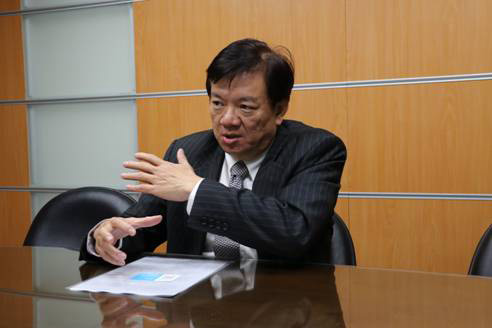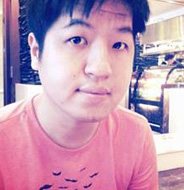From last year, thanks to efforts by the association, patent attorney training is now to be conducted by the Taiwan Patent Attorneys Association. In addition to this, the association has engaged in a series of international visits and practical exchanges over the last two years. The reason behind these new measures, is a series of changes in the greater industry environment, pushing patent attorneys not only to keep up with, but to be ambassadors for change in meeting the new demands of the business world.
In 2017, responsibility for the professional training of patent attorneys who have passed the national qualifying exam, passed from the hands of the Intellectual Property Office to those of the Taiwan Patent Attorneys Association, and there has been certain significant changes to the content of training courses as a result. "We've added in a lot of issues that patent attorneys will come across in the course of their careers," stated the President of the association Justin K.S. Wu. As well as classes on the standards for patent examination, they also arrange visits to the Intellectual Property Court, as well as classes on patent infringement and freedom to operate analyses, patent licensing and contracts and even the establishment and management of patent firms.
"To be honest, they've been tested on patent examination standards during their qualifying examination, and they'll come upon them again in the course of their work, they don't need to be over-emphasized, so we prepare them for other problems they'll come up against in their working careers," said Wu.
The changes in the larger environment, especially the series of legal amendments which started last year, really have presented new challenges. The amendment to the Statute for Industrial Innovation at the end of last year, stipulates that the competent authority (the Ministry of Economic Affairs) is charged with the cultivation of intangible assets valuation associates, and the promotion of investment in or financing with intangible assets, securitization and other transactions (the amendment to the Statute for Industrial Innovation made the establishment of a system for the evaluation of intangible assets a priority); After this the patent linkage system was also passed, which makes the expiry of the patents of original pharmaceutical manufacturers a criterion for examination of a license for generic manufacturers to bring a drug onto the market; and to go along with these new systems, the Intellectual Property Office is planning an amendment to the Patent Act, to accelerate the efficiency of patent invalidation proceedings.
The Diversification of the Role of Patent Attorney
For patent attorneys, the biggest thing these patent changes will mean is that they won't only be battling with the Intellectual Property Office or the Intellectual Property Court anymore, but also with government organs under the Ministry of Economic Affairs, and even the Food and Drug Administration under the Ministry of Health and Welfare; and work will not be limited to patent application, but they will also need an understanding of drug patent registration with the FDA, and how to deploy patent portfolios under the Ministry of Economic Affairs’ Research and Development Projects.
Figure 1: Taiwan Patent Attorneys Association President Justin K.S. Wu

The transformations that have happened in the environment, require the quality of patent attorneys to improve, or even to surpass the speed of these changes, in order to ensure they're not knocked out of the industry. For example, the Business IP Management Committee which Wu founded during his presidency is the bridge between patent attorneys and industry. The events planned by this committee are opportunities for industry members to share their experience in patent management and monetization. "Patent litigation, licensing negotiations and patent monetization... we welcome all kinds of topics."
He added, these industry players are actually extremely happy to share their own stories, some of which are useful experiences that are not known to the public. "The speakers or participants that we invite to this committee are not limited to the members of the association, with an objective of increasing the amount of interaction patent attorneys have with other industries, and so that we can increase awareness of the value of patent attorneys in different industrial fields.
Number of Patent Attorney Examination Candidates
Wu also has plans to cultivate young patent attorneys within the association. After getting the consensus of the association behind him, he shortened the term of each committee member from three years to one year, to allow more people to gain experience. "If you really want to achieve things, one year is enough to realize your achievement," he explained, and within these three years, each committee cultivates nine chairs and vice-chairs with experience who can assume personal responsibility as competent talents for the association.
Moreover, Wu points out that among the patent attorneys currently registered with the Taiwan Patent Attorneys Association, the new generation which became patent attorneys through taking the national examination under the new system already constitutes two thirds of the association. "There are more and more of them, so the more senior members have to think about how they will pass on the baton, and not just keep occupying the same position." He estimates that by the election of the next Taiwan Patent Attorneys Association Central Committee, these young patent attorneys will be in a position to shine.
With the dramatic transformations over recent years, as the President of the Association, Wu is happy to see the value of patents being acknowledged more widely in society, but he is keenly aware that there is much left to do. For example, after the amendment to the Statute for Industrial Innovation, the participation of patent agents in the appraisal of intangible assets - especially the appraisal of patent value - is essential. "Patent, trademarks and copyright differ in essence, and require a strong professional skill base, so it can't be carried out just through the licensing or assignment process," he pointed out. To overcome the difficulty in terms of the technical skills and knowledge, when evaluating a patent's value, you need a patent attorney's credentials to analyze the various aspects involved, including ranking the technology and its application. Only then can a financial expert issue an appraisal report. It's only this kind of appraisal that will have any credibility in industry circles. Moreover, when it comes to patent invalidation proceedings, Wu suggests that the Intellectual Property Office should settle the matter directly, adopting the adversarial system which has been in place in other countries for years, only then will the flaws in the current system, which lead to delays, be resolved, improving Taiwan's patent quality.
 |
|
| Author: |
Clarence Chiang |
| Current Post: |
Senior Editor, NAIP Newsletter |
| Education: |
Business Administration, National Chengchi University, Taiwan |
| Experience: |
Reporter, CommonWealth Magazine
Reporter, Business Today Magazine |
|
|
|
| Facebook |
|
Follow the IP Observer on our FB Page |
|
|
|
|
|
|

